Have you ever seen the phrase, “Competition shooting will get you killed in the streets.” If you read gun magazines in the early 2000s, it’s a phrase that likely leaped out at you.
In reality, competition shooting isn’t detrimental to your concealed carry training. In fact, it can be downright beneficial to the shooter. Obviously, the amount of benefit depends on the type of competition.
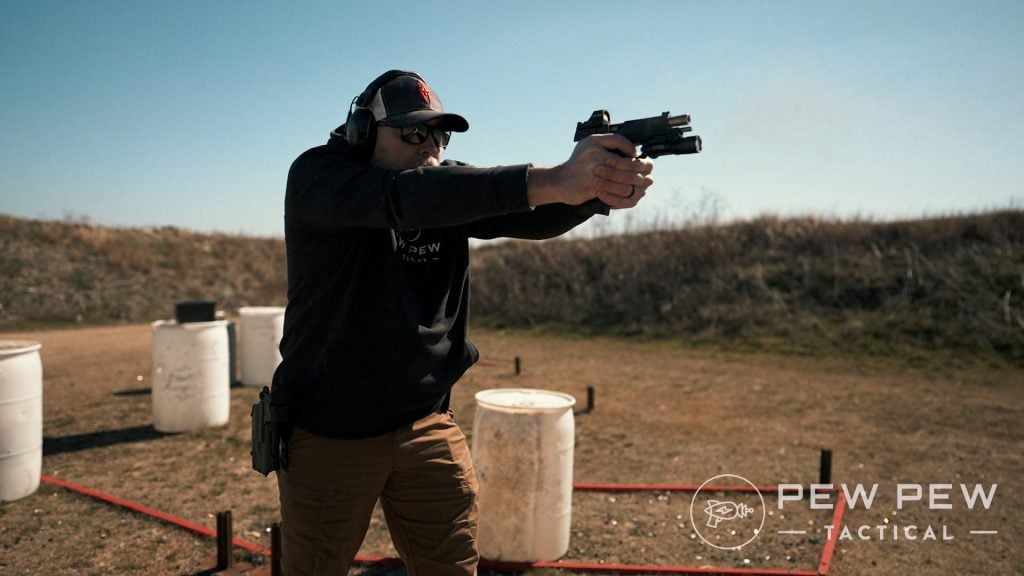
USPSA, IDPA, IPSC, and PCS can be quite valuable to the defensive-minded shooter. Even more basic competitions like Steel Challenge can benefit shooters who want to sharpen their defensive skills.
Defensive shooting relies on fast and accurate shots, as does competition shooting. They are a perfect pair.
Let’s dig into the longer, more detailed answer to why competition shooting can improve your defensive shooting skills.
How Competition Shooting Helps CCW Training
Shooting More Is Better
Let’s start with the easy one. The more you shoot, the better.
Turning money into ammo and ammo into noise is experience, and experience works wonders when shooting handguns. Every shot fired allows you to practice the fundamentals of marksmanship, sight tracking, recoil control, etc. If it takes something exciting, like competition, to get you shooting, then great.
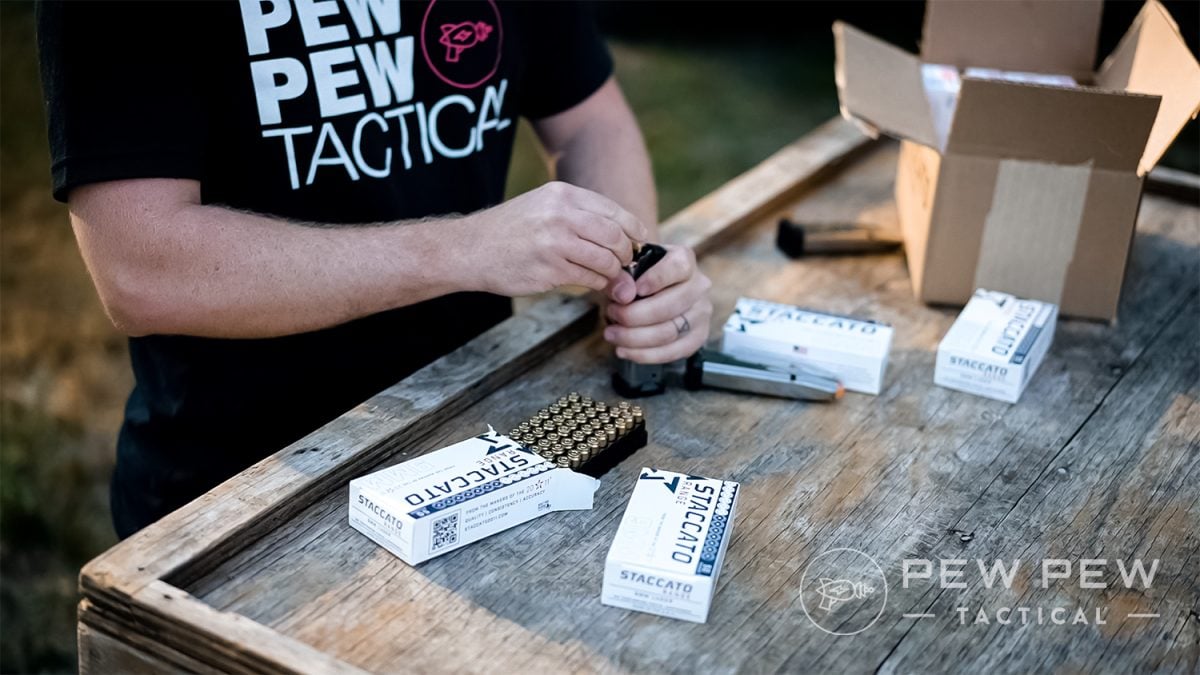
Competition shooting is much more fun than just shooting at a square range. Beyond just going to the match and shooting and getting that experience, competition shooting gives you a reason to go shooting. If you’re training for a defensive scenario that is unlikely to occur, you might not take it so seriously. That sounds crazy, but it tends to be fairly true.
If you only go to the range with the objective of getting better at an event that will likely never happen, you’re more prone to making excuses. Competition shooting gives you an event you know is going to happen, and if you know next week you need to perform in front of other people, you’re more likely to train.
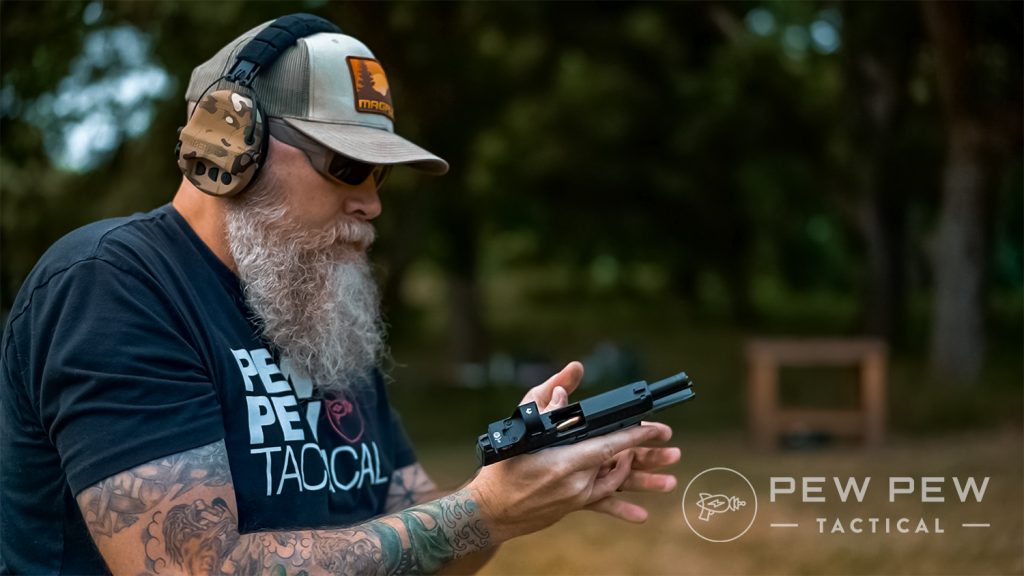
More likely to dry fire practice and work on reloads, drawing, and malfunction fixes. When you know you have something to succeed at, you’re more likely to be ready for that event.
I first realized this a decade ago when the best Gunnery Sergeant I ever had made every shoot and training event a competition. As Marines, we trained to fight a nebulous enemy in any part of the world. It wasn’t always clear, and it wasn’t always the most motivating force. However, beating the 1st and 2nd Platoon was clear and motivating.
You train harder when your enemy is a scheduled event you know is coming.
Timers and Targets Don’t Lie
Speed and accuracy are vital in competition shoots, and those same skills are critical in a defensive shooting environment.
Trust me when I say your first handgun competition is a humbling experience, and you might realize you’re not as good of a shot as you think. Timers and targets don’t lie…
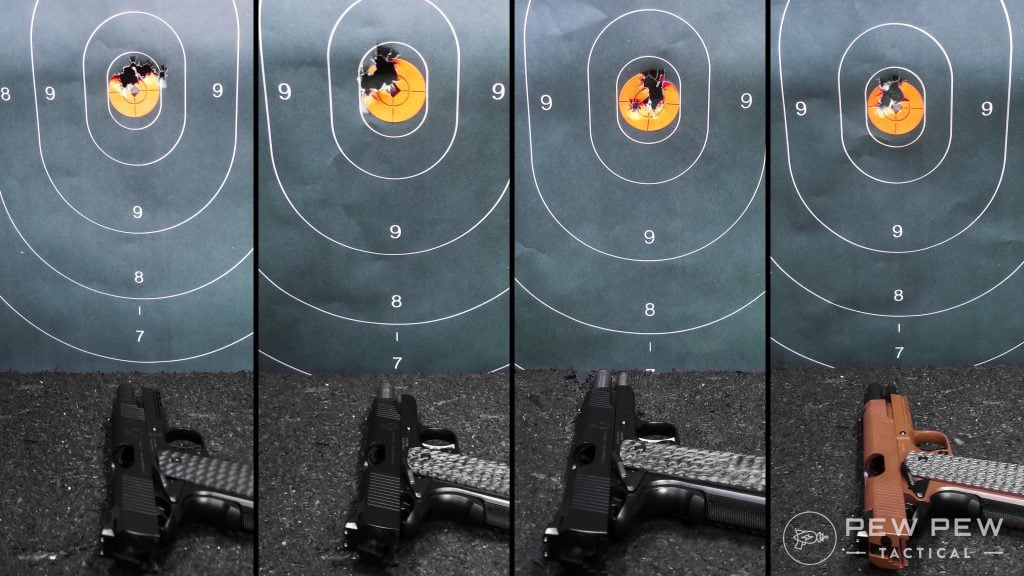
Competition shoots aren’t just scored on how small your group is, but how fast you can make that group.
In a defensive situation, you want to be more accurate and faster than the threat. Action shooting competition will test those skill sets and give you a new way to evaluate your own performance. Seeing how you shoot under a timer and against others allows you to see where you truly stand and where you need to be.
Shooting Under Stress
Shooting at the range is usually a relaxing experience for me. I take my time and generally enjoy the experience. Stress is the last thing that comes to mind when I hit the square range.

I don’t think I need to tell you how stressful an actual defensive shooting will be. Imagine the adrenaline dump and the heart rate you’ll experience if you ever draw your firearm to save your life. It’s tough to simulate that stress level, but competition can help.
Having to shoot quickly and accurately is already exciting. Having to perform in front of other people is also stressful. You also have to be mindful of safety rules and disqualification.
No one wants to lose, and no one wants to fail. What does this create? Stress.
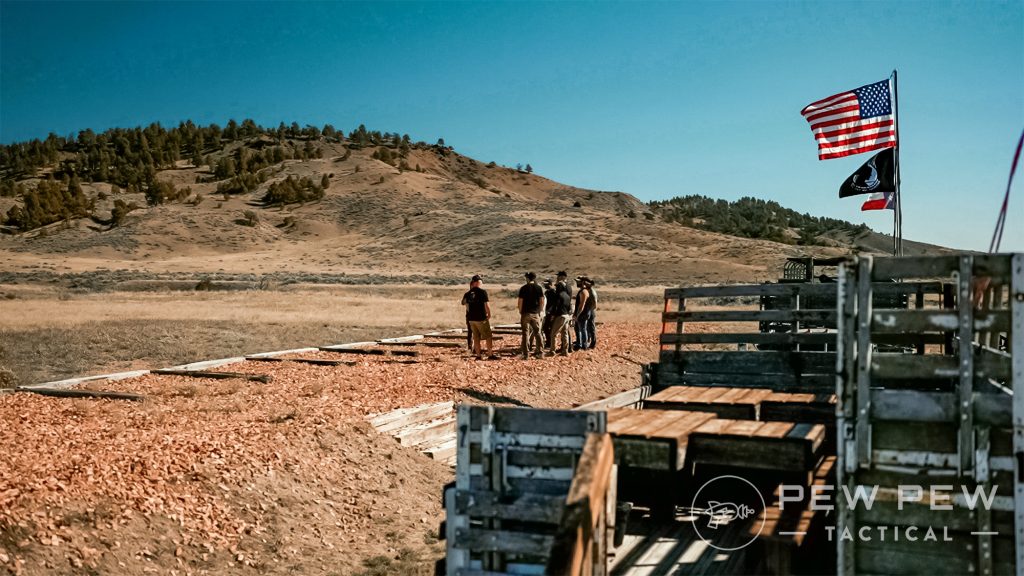
Does it hit the same levels of stress as an actual gunfight?
It certainly depends on the person, but I’ve been in violent engagements, and to me, stress is stress. Maybe I’m just anxious, but when I step into that ready box, and that beep goes off, you might as well be shooting at me.
That practice under stress creates stress inoculation. Stress inoculation is great for all aspects of life, especially when it comes to using a firearm.
Think Outside the Box
One of the most interesting things about competition shooting is its break from the square range.
I don’t know any ranges that allow me to move and shoot. However, in action shooting sports, it’s the norm.
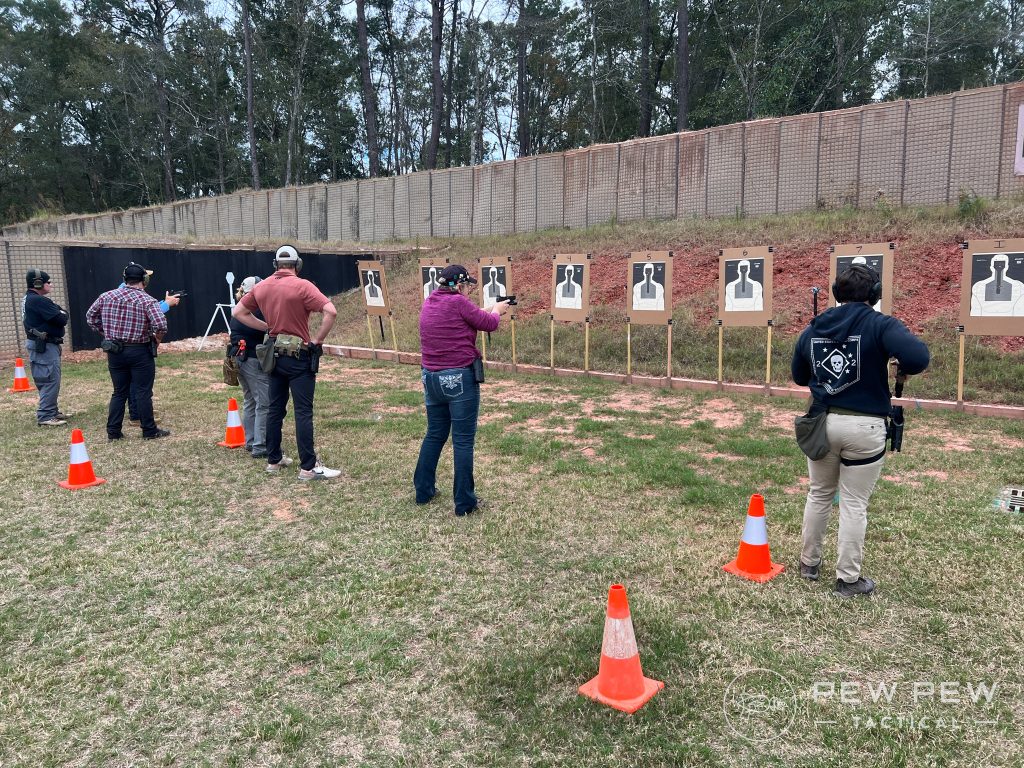
Not only do you move and shoot, but you face some very creative scenarios. Sure, they might not apply to the real world directly, but the skills you learn can be used in numerous situations.
When your starting position is seated at a table, and you navigate a safety fence stage to hit your threat, your brain starts working.
Many stages force you to keep your feet in a box, use cover, and/or utilize odd shooting positions. You have to constantly be thinking as you’re shooting. You need to be able to plan on the fly, adjust, and still shoot targets quickly and accurately.
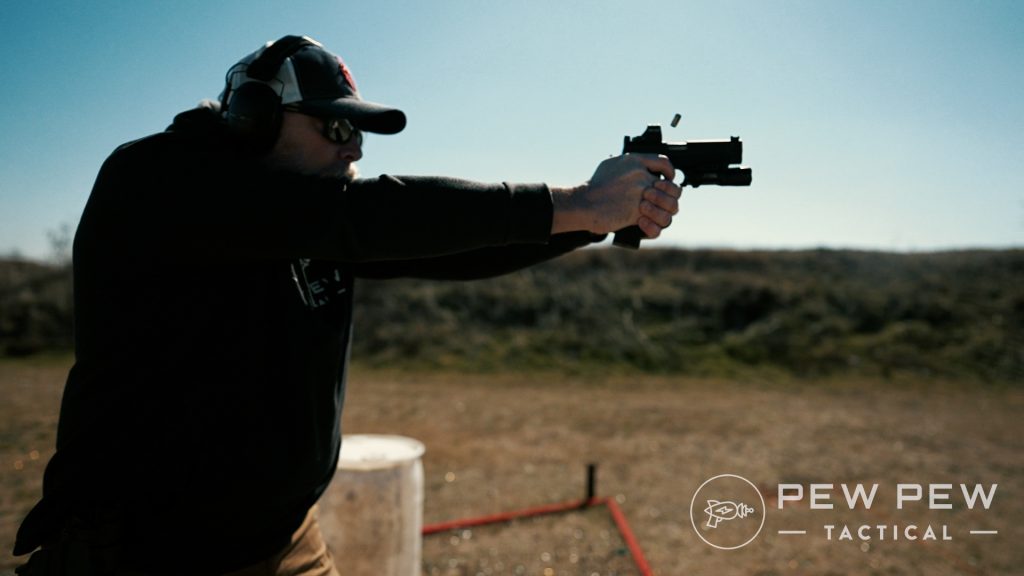
The stage design of most competition shoots is where things get interesting. It might not always simulate combat conditions, but it doesn’t have to. Learning how to think, adapt, and keep shooting is a valuable skill in and of itself.
Plus, starting the course on a jet ski suspended by ropes and being moved as you try to shoot is pretty dang fun.
Real-Time Training
Usually, when I go to the square range to train, I have a decent idea of what I will do. I might work on drawing, general marksmanship, hitting smaller targets at longer ranges, or reloads.
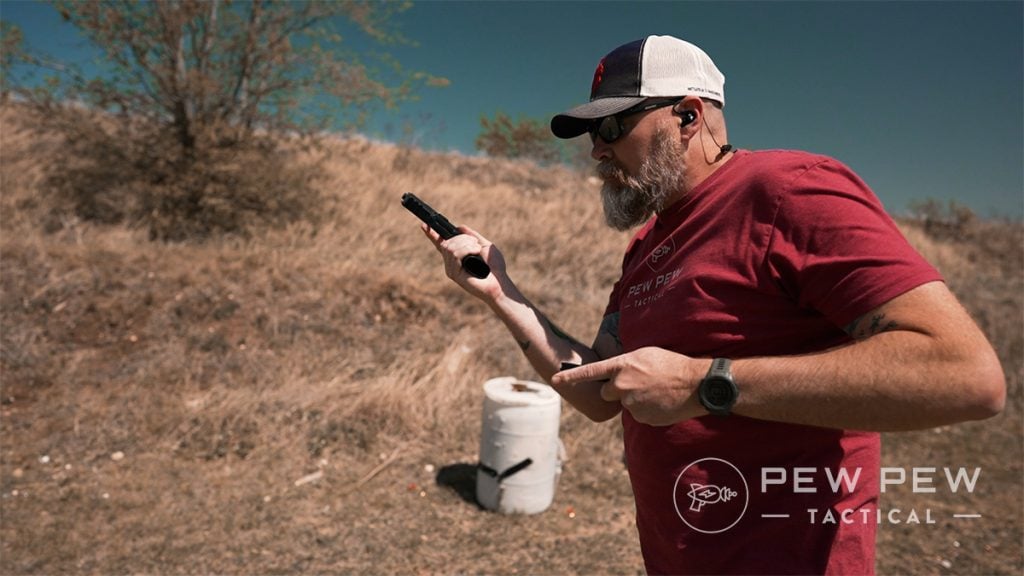
Competition shooting, on the other hand, has a way of surprising you. Instead of repeatedly working reloads, you’re now dealing with the surprise of a locked back slide because you counted nine when you fired ten.
Oh, your super reliable gun went click instead of bang…better get into remedial action and fix it.
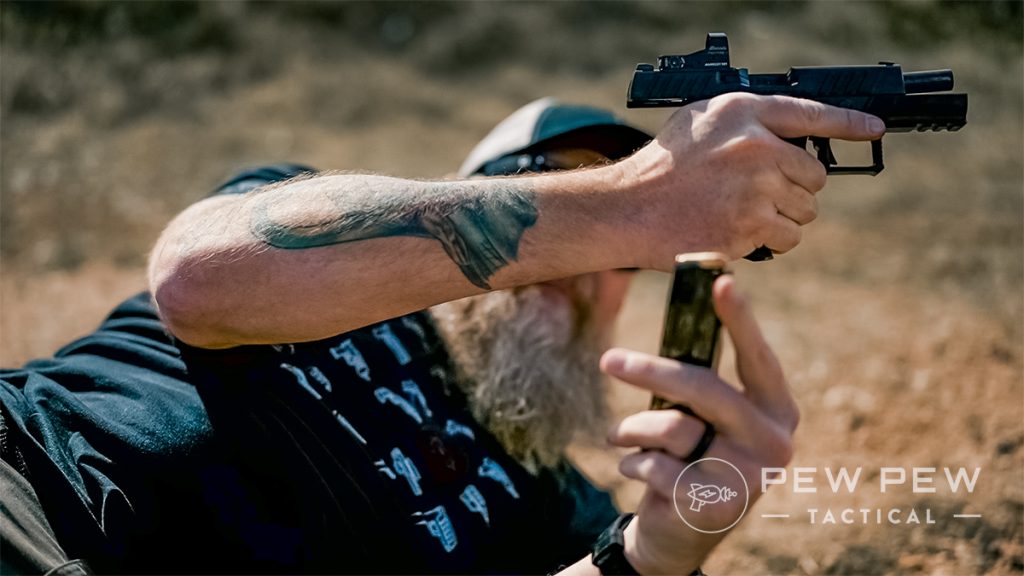
Competition shooting provides real-time training that’s not predictable. You have to adapt on the fly. You might need to shoot with one hand, switch hands, shoot in awkward positions, etc. This is all stuff you likely can’t do on the square range and possibly won’t think to do.
You don’t know how much you don’t know until you seriously start running your gun. You’ll quickly learn what parallax is, how often good guns can act up, and where you stand on your ability to use the basic functions of your gun.
What Works & What Doesn’t
Finally, what’s a better way to evaluate your defensive handgun than by shooting it?
Using your carry gun for competition benefits your concealed carry skills.
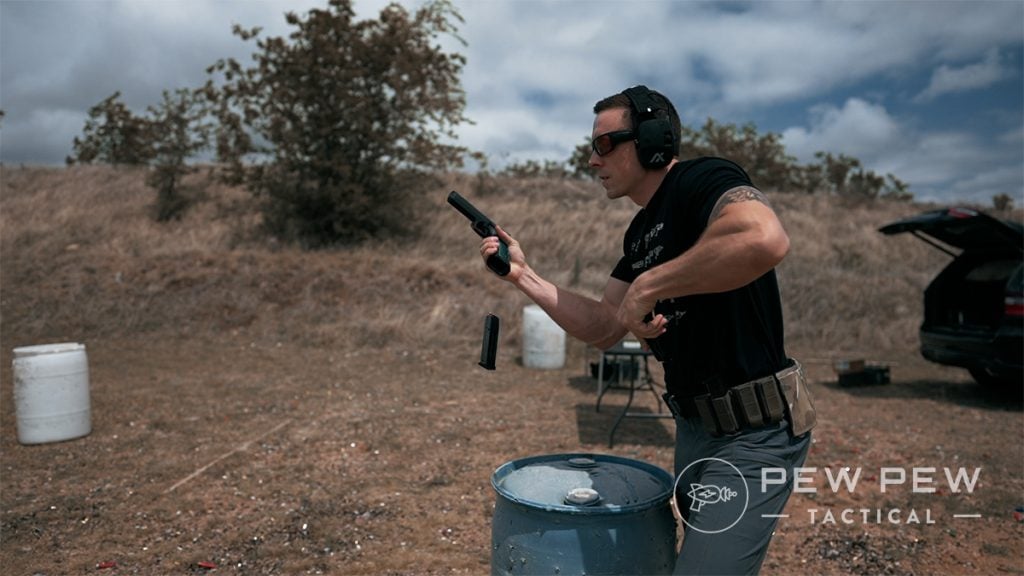
You can validate your gun and things like holsters, optics, carry method, and more. The competition field of action shooting is a great test of gear. You’ll learn its strengths and weaknesses. (Seeing my optic fail in the lightest of sprinkles convinced me to go with the Holosun EPS.)
It will certainly show you why cheap mags are cheap and why certain upgrades aren’t always worth the money.
Final Thoughts
Can competition shooting make you a better concealed carrier? Yes, easily so.
In fact, these days, I think we’ve had a bit of a switch in the attitude of competition and defensive shooting.
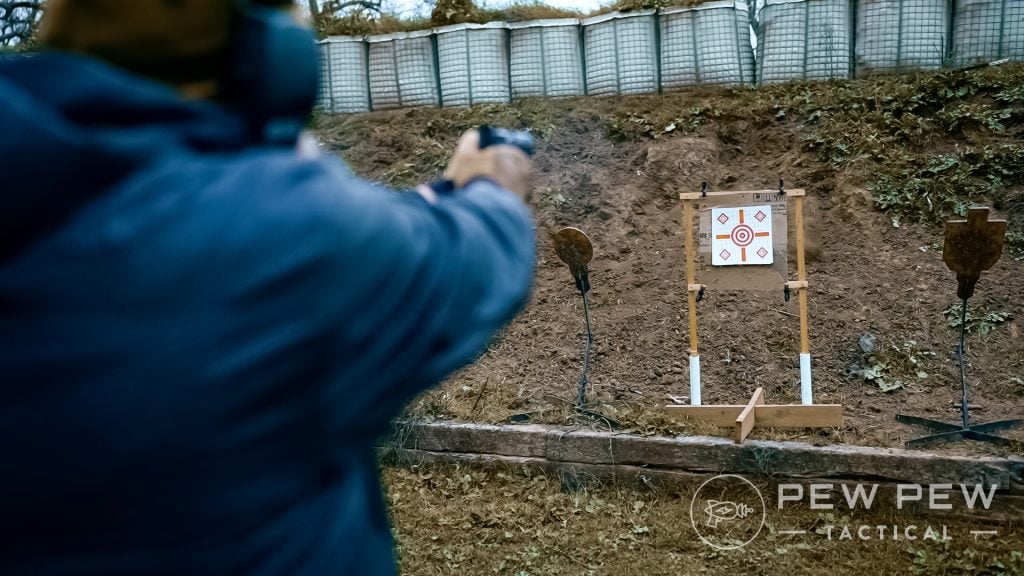
Defensive firearm training from a reputable instructor is still the best way to prepare for a defensive engagement. Competition shooting doesn’t replace defensive firearm training but can complement it.
Learning techniques from an instructor and taking them to the competition world is a great way to sharpen your defensive skills.
What’s your take on competition shooting? Let us know in the comments below! Want to learn more about competition shooting? We have more details in our Competition Shooting Guide.

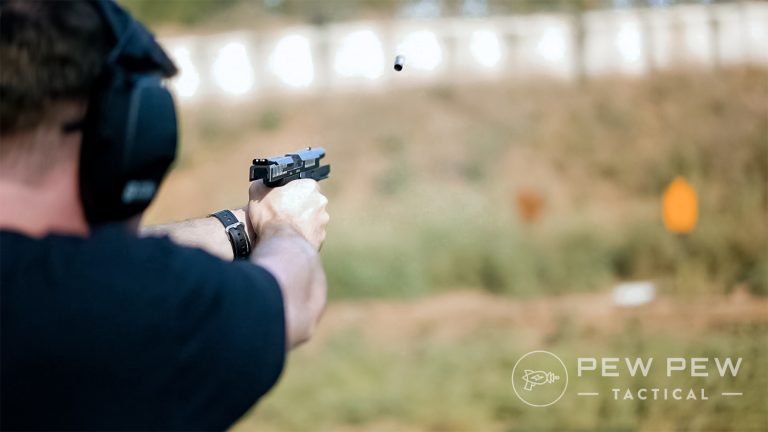




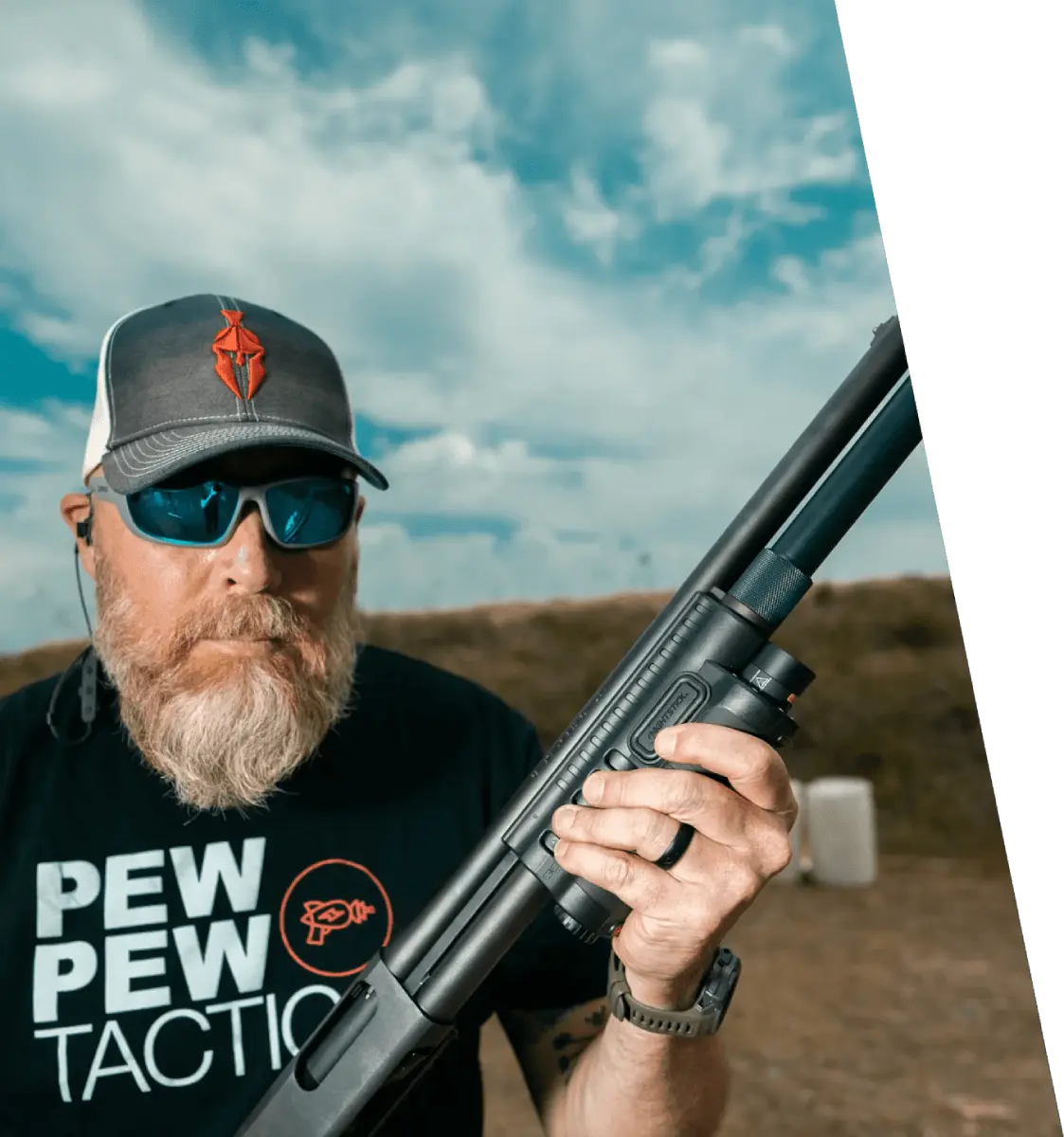

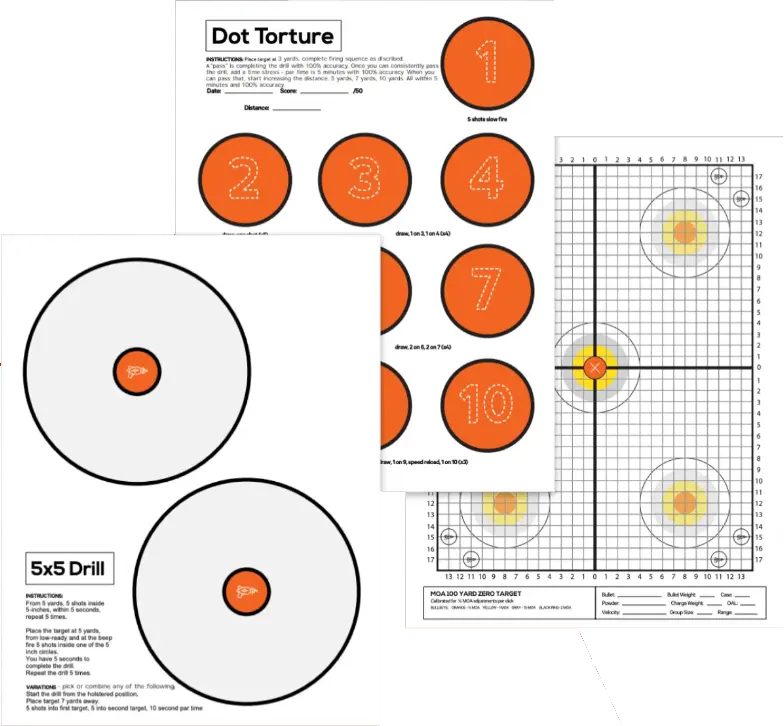
2 Leave a Reply
Dave, the third paragraph, first sentence, lists "USPSA, IDPA, IPSC, and PCS . . ." (sic) Although the last one should be PCSL.
No mention of IDPA? As an NRA certified pistol instructor, International Defensive Pistol Association practice & matches is an excellent tool to refine your gun handling skills. The stages develop accuracy under pressure, shooting from cover, mag changes from cover, and accuracy. Highly recommended!